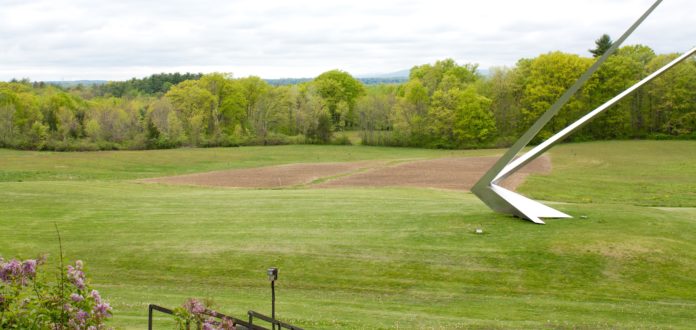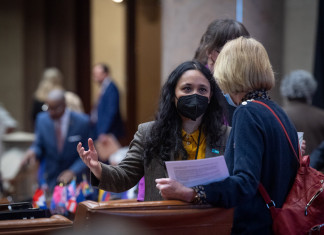
Work has begun on the new Bard College Farm, a 1.5 acre plot of land on the north end of campus. With plowing well underway, and irrigation and fencing infrastructure soon to be finished, the organizers expect the farm to be operational before the summer.
The farm, located behind the historic manor house not far from the Fisher Center for the Performing Arts, originally grew out of a desire to expand Bard’s long-thriving community garden. Paul Marienthal, Bard’s director of the Trustee Leader Scholar program and Associate Dean of Civic Engagement, said, “There has been so much talk in the last couple of years about food and food systems. There are political issues, there are scientific issues. It was time to take it up in a serious way.”
Several hundred students signed the original petition to create the campus farm. Their interest led Bard president Leon Botstein and the administration to propose that if students could raise one third of the required funding, the school would provide the rest of the money. “If you really want this, then make it a reality,” Marienthal challenged students.
John-Paul J. Sliva, a local farmer who organized the Red Hook community garden and assisted Marienthal in revamping Bard’s garden, projected the cost would be $60,000 for the farm infrastructure and supplies for the first season. Students responded by launching an energetic fundraising campaign that surpassed their $20,000 goal in only three weeks.
Bard student Carter Vanderbilt organized the campaign. The students managed to raise more than $13,000 on kickstarter, a website that facilitates crowd-funding projects. The Bard Farm project page, which describes the farm as “directing the minds of all students to develop a deeper connection to their food and better understand its processes of growth and distribution,” shows three donations of over $1,000, 22 of over $100 and over 100 donations of other amounts. The project also got a $3,000 donation from Chartwells, the college’s dining-services contractor. Much of the remaining money was raised at a well-attended “Farm Fest,” which featured local food, second-hand clothing sales, flea markets and live music.
Vanderbilt said he “was amazed by the energy and enthusiasm” shown by the student.
Should the farm be successful, there are many options being discussed for what to do with the produce. The suggestions range from Chartwells purchasing it for campus dining halls and cafes to farm-to-table benefit dinners, farm shares, local food pantry donations and local restaurants.
Marienthal stressed that there were many important dimensions to having a campus farm. In addition to growing as much food as possible, the project will expose students to both the theoretical construction of food systems and the hands-on work that’s needed to grow sustainable locally sourced produce. He also hopes that the farm will also be used by academic classes. He welcomed biology, chemistry and environmental science professors to incorporate the farm into their classes.







Facebook Comments